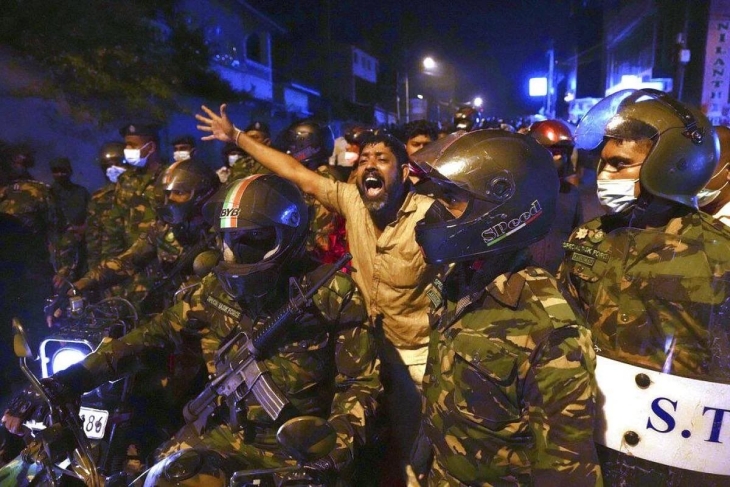The proposed Anri-terrorism Bill is a grave threat to human rights and individual freedom as it would shrink in the democratic space in society, the Lanks Democratic Movement (LDM) said.
The full statement issued by the LDM is as follows,
"We strongly oppose the proposed Anti-terrorism bill, which threatens to undermine democracy and erode judicial oversight over detentions. This bill has the potential to stifle the right to peaceful protest and poses a grave threat to individual freedoms. The new law introduces more draconian measures than the current Prevention of Terrorism Act (PTA), which we believe curtail human rights and individual freedom.
We call on all those who value freedom and the rule of law to join us in defeating this bill. The right to protest peacefully is a fundamental pillar of any democracy, and this bill threatens to crush it. We urge the government to reconsider this proposed legislation and uphold the principles of democracy, freedom, and human rights for all.
It is apparent that the current government intends to utilize the proposed Anti-terrorism Bill as a means to consolidate their hold on power by suppressing opposing voices. However, the nature of such repressive laws is that even their architects can become victims of them when governments change. Therefore, those who support the Anti-terrorism Bill today must remember that a future government could potentially employ the same legislation to stifle them.
In a democratic society, the rule of law and the protection of fundamental human rights are crucial principles that must be upheld. Counter-terrorism measures must respect these principles and avoid infringing upon the rights of citizens.
Any counter-terrorism law should be transparent, accountable, and subject to judicial oversight to prevent abuse of power. It should also include clear definitions of what constitutes terrorism and what actions are prohibited, to prevent arbitrary or excessive use of force.
Additionally, any new counter-terrorism law must be proportionate to the threat faced and should not unduly restrict the freedom of speech, association, or assembly. Safeguards should also be in place to protect against racial profiling and discrimination.
Overall, it is possible to introduce counter-terrorism laws without violating basic tenets of democracy, but it requires careful consideration and balancing of the need for security with respect for individual rights and freedoms. Unfortunately, the Government has failed to adhere to these basic tenets of democracy when designing the Anti-Terrorism Bill.
Rasika Jayakody Convener, Lanka Democratic Movement (LDM)










